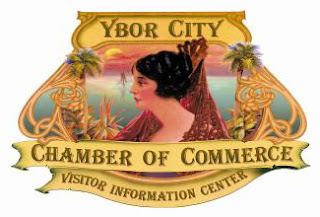Precedential No. 8: TTAB Finds "YBOR GOLD" Primarily Geographically Deceptively Misdescriptive of Cigars
In its eighth precedential decision of 2007, the Board affirmed a Section 2(e)(3) refusal to register the mark YBOR GOLD for "cigars, pipe tobacco and roll-your-own tobacco," finding the mark to be primarily geographically deceptively misdescriptive. In re South Park Cigar, Inc., 82 USPQ2d 1507 (TTAB 2007).

In a well-reasoned and careful opinion, the Board began by pointing out that, under the CAFC's California Innovations decision, the proper basis for refusal of a geographically deceptive mark is not Section 2(a) but Section 2(e)(3). To maintain such a refusal, the PTO must show that (1) the primary significance of the mark is a generally known geographical location; (2) consumers are likely to believe that the goods originate from the place identified when in fact they do not; and (3) the misrepresentation would be a material factor in the consumer's decision to purchase the goods.
As to the first element of the test, the PTO's evidence showed that Ybor City is the name of a "generally known geographic place," namely, a neighborhood or area in Tampa, Florida. It is neither obscure nor remote, "especially to the relevant purchasing public, i.e., cigar aficionados." Moreover, the primarily significance of the mark YBOR GOLD is Ybor City. The record contained numerous examples of "Ybor" alone being used as a shorthand reference for Ybor City. The addition of the word GOLD, which is highly suggestive and laudatory, does not detract from the geographical significance of the mark.
As to the second element, although Applicant's address was in Cincinnati, it stated that "is relocating its office to Tampa where Applicant's goods will originate from" [Applicant's emphasis], and later it asserted that it "has relocated in Tampa." Examining Attorney Daniel Brody pointed out that relocation to Tampa does not necessarily mean relocation to Ybor City, as opposed to some other part of Tampa. The Board agreed with the PTO, ruling that "the record does not support a finding that applicant's goods will come from Ybor City." The question then was whether there exists a goods/place association between cigars and Ybor City. The Board said yes. Travel guides and websites referred to Ybor City's history as a cigar center where one may buy hand-rolled cigars." The evidence sufficed to establish the required "reasonable predicate" for concluding that consumers are likely to make an association between cigars and Ybor City: i.e., "that they are likely to regard Ybor City as a 'known source' for cigars."

Finally, as to the third element, the Board observed that under the case law materiality may be established by showing that the place named in the mark is "famous as a source of the goods at issue," that the goods are a "principal product" of the place, that the place is "noted for" or "renowned for" such goods, or that the goods are the "traditional" products of the place named. The Board found all of those formulations applicable here. Ybor City was once "the cigar capital of the world," and "Cigar City USA," where 140 cigar factories produced 250 million cigars per year. This cigar-dominated history is a "crucial element of its tourism marketing." The Board therefore found that purchasers are likely to mistakenly assume that cigars sold under the YBOR GOLD mark "are associated with or have some connection with Ybor City," and that "such assumption would be material to the decision to purchase the goods."
In conclusion, the Board found the mark to be primarily geographically deceptively misdescriptive, and it affirmed the refusal to register.
Text Copyright John L. Welch 2007.




0 Comments:
Post a Comment
<< Home